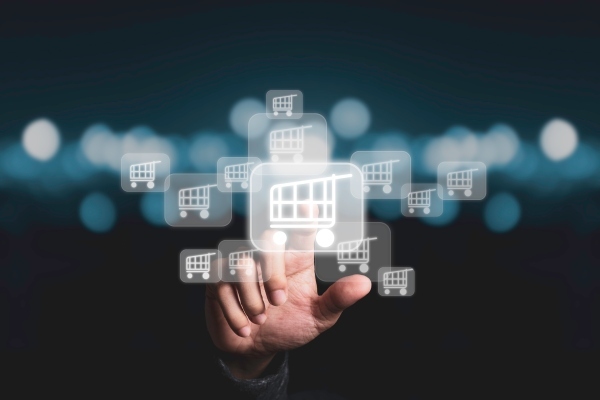
Hi Everyone. Here is a great article I found on change with a very relevant topic:
You can find anything in Heathrow airport if you walk far enough. Near Terminal 2, past the bus station, under a flyover, you can even find God. The airport chapel is a windowless stone bunker, located down a flight of stairs. Here, at Monday lunchtime, I joined a dozen airport employees for a Catholic mass. It was a surprisingly tender, surreal service, which ended with an a cappella version of “Amazing Grace”. On the way out, I considered buying a postcard of St Christopher, patron saint of travellers. Most air passengers see no need for such rituals. For decades, crossing continents hasn’t been an act of faith; it has been a fact of life. Flying seems so simple that even a small delay can lead us to rage on social media. It is so mundane that you can partly do it yourself: check yourself in, put your own labels on your bag, pick your own seat on the plane. “Don’t tell me this isn’t an age of miracles. Don’t tell me we can’t be everywhere at once,” says George Clooney in the film Up in the Air. Clooney’s character is a company man who dreams of reaching 10m air miles and excels at navigating airport security.
For mere mortals too, travelling has become just a series of hacks. We started by never changing money at the airport (Heathrow’s rates are about 20 per cent from reality) and took it from there. People stopped offering rounds of applause when the plane landed safely, or even expressing wonder at the ability to fly to Hong Kong for a wedding weekend. And then came coronavirus. For most of my adult life, “going viral” has been a good thing. Coronavirus has ruined the metaphor. It has reminded us that the world is not as controllable as it appeared. There are risks that cannot be minimised by passing through an all-body scanner and pouring our toiletries into 100ml bottles. Barcelona’s Mobile World Congress and London’s Book Fair were cancelled, Twitter ordered all its staff to work from home, and the new, unfortunately titled James Bond film No Time to Die was delayed until November. The death toll is not yet comparable even to seasonal flu, but the disruption already goes far wider.
I went to Heathrow to see it first-hand. I found the airport eerily empty. “It’s been quiet all month,” said a British Airways attendant, surveying the vast hall of Terminal 5 — a monument to globalisation. BA had cancelled flights to China, Italy and beyond. Other airlines too were reporting a sharp drop in bookings, and a rise in passengers simply not turning up. Coronavirus is an epidemic for our times. Perhaps more than any disease in living memory, it chimes with our society’s fears. The past few years have seen the emergence of doomsday preppers — super-wealthy individuals planning their escape in case of societal breakdown. Politics has already swung against open borders and global supply chains. In Europe, a sizeable chunk of consumers has stopped flying out of climate guilt. Our most sacred events — international sports tournaments — have already started to be disrupted, by extreme weather.
Two matches at last year’s Rugby World Cup were cancelled due to a typhoon. At January’s Australian Open, a tennis player collapsed after inhaling wildfire smoke. Now Tokyo’s Olympic Games may be delayed. Modern society is a wrestling match between those, particularly environmentalists, who argue that there are unprecedented risks, and those, such as Steven Pinker, who prefer to focus on the unprecedented opportunities. It’s an age where both human extinction and human immortality are discussed as genuine possibilities. The coming global pandemic could tilt our perception of which is more likely.
At least one in five adults — maybe as many as 60 per cent — will become infected, a Harvard University disease expert, Marc Lipsitch, has estimated. Nearly all of these — perhaps 98 to 99 per cent — will survive. Will humans nonetheless emerge with a new sense of vulnerability? Will we accept that the horizons are not so open after all? The defining legacy of most disease outbreaks is their lack of legacy. The 1918 flu pandemic probably killed more people than the first world war — estimates now go above 50m — but is treated as a footnote to the conflict. For many years, historians didn’t really write about the so-called Spanish flu, except to note that it wasn’t actually Spanish. (Spain, being neutral during the war, may simply have censored news of the outbreak less than some other countries.) Epidemics come and go, and have done so for centuries; they can seem too unpredictable for interpretation.
When the Black Death struck, our ancestors saw it as divine punishment for human sinfulness. Inconveniently for this theory, priests themselves were killed in large numbers. So instead of turning sinners to the Church, the plague may have turned people away. There are two ways that disease outbreaks can change us. The first is through reflection. As anyone who has ever had a cold has realised, illness lends itself to introspection. John Donne was suffering from fever when he wrote his famous ode to co-operation — and possible attack on puritanism — starting “No Man Is an Island”. Virginia Woolf argued that illness involved “a childish outspokenness . . . things are said, truths blurted out, which the cautious respectability of health conceals”.
The second is structural. The Black Death accelerated the disintegration of English feudalism: so many peasants died that the landlords lost their grip. The first world war accelerated the rise of working women: once they had replaced men in factories, a Rubicon had been crossed. If the 1918 epidemic left an imprint, it was perhaps accelerating the arrival of public healthcare. Coronavirus has already been claimed by ideologues.
Donald Trump said that it justified tighter border controls; Bernie Sanders linked it to free public healthcare. Matt Stoller, a campaigner for corporate regulation, argued that coronavirus marked the end of “affluence politics” — that is, “the politics of not paying attention to what creates wealth in the first place”. Coronavirus may make us reconsider how many journeys — holidays, work trips, conferences — are actually essential. The threat of terrorism didn’t stop us flying. Since September 11, the number of US air passengers has risen by one-third; global numbers have more than doubled.
But coronavirus, particularly if it recurs sporadically, may prod some business travellers to adopt video conferencing instead of hugely emitting flights. It may even encourage more men to wash their hands (although my trip to the lavatories at Heathrow was not entirely reassuring in this regard). It may bring overdue changes to China’s live animal markets, where the disease probably spread to humans. The possibilities go further. Coronavirus — by disrupting our lives and causing painful tragedy — may introduce a new acceptance of unpredictability into our thinking. We are told of the threats from antibiotic resistance, US-China conflict and the breakdown of ecosystems. Those threats feel distant. How can things be about to go backwards, now that Qantas is proposing a direct flight from London to Sydney, and Tumi sells ballistic nylon wheelie suitcases with electronic tracing?
Perceiving humanity’s fragility is tricky in a world of increasing possibilities. This may help to explain why people in rich countries are less worried by climate change than those in poor countries. According to YouGov, 70 per cent of Indians say that climate change will have a great deal of impact on their lives, compared with fewer than 20 per cent of Britons, Germans and Scandinavians. People in the US and Europe are also far less likely than those in Asia to think that climate change will spark a new world war or the extinction of the human race.
Personal experience of hardship seems to make a significant difference: researchers in Britain have found that people affected by winter floods are more likely to express concern about climate change, take personal action to reduce their energy use, and support emission-cutting policies. Coronavirus is not caused by climate change, but it wreaks the kind of disruption we might face in the future. “This is certainly not the last time that we’re going to have these kinds of disease eruptions if we deny, delude and delay on climate change,” the former United Nations climate chief Christiana Figueres told Channel 4 News.
Environmental concern plunged during the financial crisis, because the public had more immediate economic concerns. But this time may be different. Coronavirus comes after a series of wake-up calls — the searing European summer of 2018, the Californian and Australian wildfires, the floods everywhere from Britain to Indonesia. Philip Ziegler, the historian, wrote that after the Black Death, the typical European “lived in a constant anticipation of disaster . . . Perhaps the factor which contributed most towards his demoralisation was his almost total ignorance of the workings of his world.” We are more fortunate: we know what to do to halt climate change, we just have to do it. Our vulnerability stretches further. A growing group of scientists, technologists and philosophers now argue that humanity faces a non-trivial risk of extinction this century.
The Oxford philosopher Toby Ord came to prominence in 2009, when he pledged to give his salary above £20,000 to charity. His new book, The Precipice: Existential Risk and the Future of Humanity, analyses the existential risks facing humanity. He argues that, in the 20th century, we only thought of one — nuclear war. Now there are several, some of them our own doing — climate change, artificial intelligence, biowarfare. “During the 20th century, my best guess is that we faced around a one-in-a hundred risk of human extinction or the unrecoverable collapse of civilisation,” Ord writes. “Given everything I know, I put the existential risk at around one in six: Russian roulette.” One in six is also the chance that The New York Times’ statistical analysis gave Donald Trump of becoming president on the eve of the 2016 election.
Ord argues that our current sense of risk — such as when it is safe to cross a road — is insufficient to deal with threats that are so dire they must be minimised; we need a complete rethink. Coronavirus is an imperfect place to start that reflection: even the worst pandemics, the Black Death and the 1918 influenza, were not paths to extinction. Yet the epidemic could, at the very least, be part of the learning curve. If we can accept cancelled flights, closed schools, postponed sporting fixtures now, perhaps we can accept restraints in the future. If we can rely on international co-operation now, perhaps we can summon the same spirit again
A year ago, I would have found the idea of stockpiling food ridiculous. But the concept became normalised in 2019, as the UK government repeatedly threatened a no-deal Brexit. When coronavirus put it back on the agenda again, I realised I was primed. My stockpiling shop arrived on Monday evening. What was the harm? No one ever regretted buying seven jars of pesto, although ideally the supermarket wouldn’t have already sold out of one of the two possible flavours. Scanning the kitchen, I realised that, before long, I could be self-isolating at home for 14 days. I thought about how few places I actually needed to be — how much of life can now be conducted digitally. Unlike Clooney’s character in Up in the Air, I couldn’t be everywhere at once and I didn’t need to be.
At Heathrow, those people who were travelling were sanguine about risk and determined to fly. “I don’t like mass hysteria,” said Val, a therapist, who had travelled back from Australia. “The alternative [to not flying] was worse. I was visiting family.” Roger, an affable 83-year-old who had retired to the south of France, was returning from one of his regular trips to watch his football team, Aston Villa. “My wife says, oh no, it kills people who are old. I said we’re not old — health-wise . . . I’ve had the flu, I’ve had colds, it’ll just be in that range. Why change the habits of a lifetime?” The airport itself told a different story. It wasn’t just the empty halls. The terminals were covered in adverts featuring an elephant, and slogans such as: “Our carbon footprint. There’s no tiptoeing around it.” At some point, the habits of a lifetime will change. At some point, a nudge will be required. If the shock of coronavirus disruption isn’t enough for us to recalibrate, what will be?















Leave a Reply